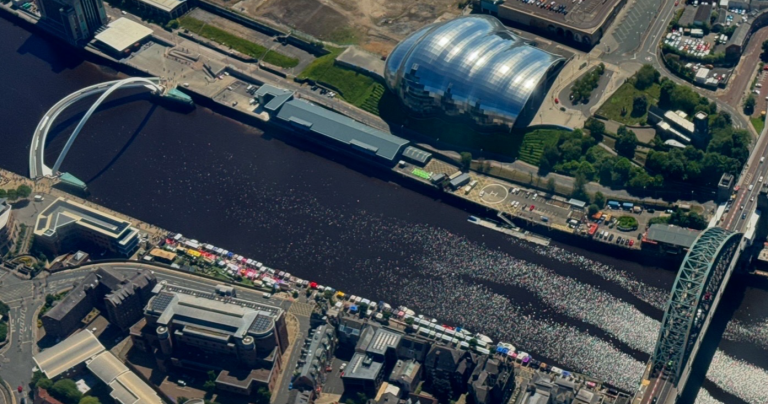
Google are doing a lot of “10X innovation” right now. That is innovation that isn’t just incrementally better than the competition (like a 10% improvement) but a moon-shot, 10-times improvement. One of these initiatives is called Project Loon:
You can sometimes see these balloons being tested off the coast of Christchurch, New Zealand, on FlightRadar, which means these craft are equipped with Automatic Dependent Surveillance Broadcast (ADS-B) systems:

Project Loon = Loads of balloons
That’s the crux of the idea. Hundreds, potentially thousands, of helium balloons circling the globe at an altitude of about 20km providing internet access to the 2/3rds of the planet who currently don’t have it.
Internet-enabled business “grow twice as fast” according to Google’s rhetoric, the Internet gives a voice to people in oppressive regimes, opens up free trade, levels the playing field, etc. etc. To be honest, trying to sell the Internet in areas where there has been no Internet will always make me think of the terribleways it was mis-sold in the 1990s. But I’m hopeful we learned our lessons, and that the first exposure to The Web for developing countries won’t be a kid riding a flying keyboard through cyberspace.
But Loon is a bigger project than just delivering Internet, in fact The Web is the perfect example of something that is “greater than the sum of its parts”. Remember that line from The Social Network? “They don’t have roads [in Bosnia]… but they have Facebook?” Internet-enabled nations join a collectively intelligent organism made up of individuals – where single voices with important messages can be heard and amplified. Where the entirety of human knowledge and literature can be accessed with a few quick keystrokes.
Latency
While Project Loon may spark a new explosion of innovation, business and human progress, unlocking the latent talents, skills and creativity of the unconnected 2/3rds of Earth (and that’s a fantastic thing), I suspect that even at light-speed, the switching gear in the balloons and ground stations will mean dial-up-like latency will result. We won’t see kids from deepest Africa on Forza or Call of Duty playing against Americans, not just yet, but we may see those Africans playing against people in their neighbouring villages and cities.
Alternatively, we may see an entirely new breed of games where latency isn’t an issue, instead it is a virtue, giving people the opportunity to think before playing a move. Games that encourage those new to the WWW to move quickly along the learning curve and learn the new standards of instant communication, ability to show off your creative photographs and works instantly to billions of other people and bringing political fairness and international scrutiny to places ruled with a heavy hand.
Or maybe simply the resurgence of classic games like Chess?
Facebook’s Project Loon Competitor
It’s not just Google trying to get people to use the Internet and click on their adverts, Facebook are taking a different tack to high-altitude Internet Service Provision. The Menlo Park-based social network is in talks to acquire Titan Aerospace, the creators of high-altitude, solar-powered drones.
Google Watch
Watching this my concerns are that Google has a very bad track record of respecting privacy. With that record it is only right that we consider what Project Loon could also mean for our right to living a private life:
- Real-time Google Earth imagery
- Real-time street-view with side-looking cameras
- Broad spectrum radio frequency recording and monitoring
- Broad spectrum radio frequency jamming
- Physical tracking of individuals without a warrant
And so on. Project Loon has the potential to be catastrophic to the concept of individual privacy. Although if they manage to do it right, and altruistically (except for getting more people to click their ads), it is a great idea and will benefit the human race significantly.



